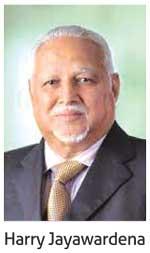07 Sep 2021 - {{hitsCtrl.values.hits}}
Higher taxes and levies slapped on legal alcoholic beverages will soon drive the less affluent population away from the ethnic coconut arrack and will make such products the privilege of the affluent few, should the status quo continues, as the shift is already in play in great proportions from how the sales behaved in recent times, according to the country’s largest spirits maker.
 Sri Lanka’s alcoholic beverages, which consist of arrack and beer, are taxed at exponential rates, making them virtually unreachable by the low and middle-income segments of society. This has pushed them towards the illicit liquor, which is thriving at the expense of the legal industry, depriving the state coffers of billions of rupees in revenues.
Sri Lanka’s alcoholic beverages, which consist of arrack and beer, are taxed at exponential rates, making them virtually unreachable by the low and middle-income segments of society. This has pushed them towards the illicit liquor, which is thriving at the expense of the legal industry, depriving the state coffers of billions of rupees in revenues.
According to Distilleries Company of Ceylon PLC Chairman and Managing Director Harry Jayawardena, this shift became more pronounced lately, perhaps because of loss of incomes of a large segment of the population, due to the pandemic-induced restrictions on their livelihoods.
“The excessive taxes and levies on coconut arrack continue to result in shrinking sales,” Jayawardena said in his review of annual operations of the company.
Providing evidence for this sales shift, Distilleries Company, which accounts for a 70 percent share of the country’s spirits market, said it witnessed the sale of its 180 millilitre bottles increasing “drastically”, while the sale of the “hitherto to more popular” 750 falling to “record levels”.
The lingering pandemic and the adverse impact on people’s incomes would only likely to accelerate this shift, even if the price remains unchanged.
“Pure coconut products are now out of reach of most consumers. It is high time that the authorities reconsider the level of these taxes and levies to ensure that the nation’s ethnic coconut products remain economically available to all consumers,” Jayawardena noted. “Unless such action is taken, it is probable that Sri Lankan coconut arrack soon be the sole privilege of the wealthy,” he added.
During the most recent fiscal quarter ended on June 30, 2021, Distilleries Company reported sales of Rs.21.7 billion, up 49.3 percent from a low base year but the June quarter sales were a clear moderation from the March quarter, which recorded Rs.26.6 billion in sales.
Jayawardena’s calls for more sensible taxes on the industry added to the growing chorus of similar demands from the rest in the alcobev industry, as it was only recently Lion Brewery Ceylon PLC Chief Dr. Rajiv Meewakkala called for “a reasonable tax structure” to eliminate the illicit industry, create affordability and generate higher revenues to the state.
Meanwhile, Jayawardena also weighed in on the anomalous licensing system for liquor outlets, which also creates breeding ground for corruption and a channel for
illicit products.
“A handful of people own more than 75 percent of the total FL4 licences and the remaining licences are also being snapped up by unscrupulous elements keen to sell both legal and tax unpaid illegal products with ease, costing colossal tax revenue losses to the state,” he said.
“We once again reiterate this practice should be stopped immediately for the benefit of the industry and condition 29 of EN 902 be rescinded,” he added.
Sri Lanka has only 2,800 liquor outlets for a population of 21 million people living in a landmass of 65,000 square kilometres, making the average distance between two liquor outlets 23.21 square kilometres.
However, this goes up to about 80 square kilometres in some of the remote parts of the country, incentivising people to distil spirits at their own backyards although that activity remains illegal.
18 Nov 2024 26 minute ago
18 Nov 2024 1 hours ago
18 Nov 2024 1 hours ago
18 Nov 2024 1 hours ago
18 Nov 2024 2 hours ago